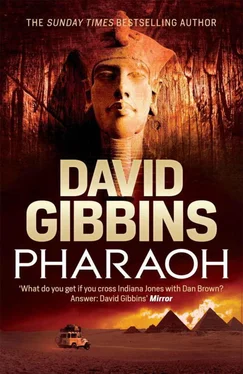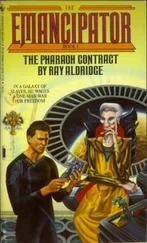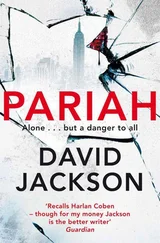‘You mean you don’t want to, sir. You know the general’s going to send you out into the desert again, and you don’t want to lose that look. It takes a while to grow a convincing beard. A few days’ stubble is a dead giveaway, as none of the Arabs have it.’
Mayne said nothing, but unwound his headdress and scarf and stuffed them into the bag, then took off his hippo-hide belt and his robe. The robe had been another layer above his uniform and at first he had objected to it, but it had kept him cool while he was riding, the white cotton reflecting the desert sun. Beneath it he wore the standard attire of an officer in the desert campaign: a Sam Browne belt with a holster for his Webley-Pryse revolver, an ammunition pouch containing twenty rounds, a bag with his tinted sun-goggles, and a leather water bottle; and below that a grey serge jumper, yellow-ochre corduroy riding breeches, puttees wound up to his knees and brown ankle-length boots, all of it adapted from kit he had worn on the North-West Frontier of India. His pith helmet, dyed with Nile mud and acacia bark and with a cloth neck veil, was attached to the saddlebag. He would have liked to carry on wearing the headdress and scarf in this heat, but he needed to remain inconspicuous, keeping spying eyes from seeing anything singular about him. And there was another factor now too: the dervish sharpshooters who might be in the cliffs opposite. A headdress would show that he had been in the desert, probably gathering intelligence, and would suggest that he was an officer, so would make him a prime target. He did not want to invite a bullet before his mission had even begun.
Jones pointed to a khaki-coloured canvas roll-up the size of a cricket kitbag among their surveying gear on one side of the sangar. ‘I kept that beside me all the time, sir, as I promised you. Your special equipment.’
Jones knew what the bag contained, though not its true purpose. On the face of it, a sporting rifle was an unremarkable piece of gear for a British officer travelling abroad who might expect opportunities to hunt along the way; there were officers fired up by tales of African game who had brought with them entire arsenals, of every imaginable type and calibre. But Mayne’s gun was a make rarely seen on this side of the Atlantic, and he did not want to draw attention to himself. The wooden box inside the bag was sealed and weatherproofed so that it was not damaged in any way. He suspected that the time to test-fire and sight it in would be soon, perhaps immediately after his visit to Wolseley, so he would take it with him when he left the sangar for the river. He nodded his acknowledgement to Jones. ‘Is my boat ready?’
‘The bows were stoved in on a rock during the passage from Korti, and the sappers down below are patching her up. They’re going to signal me when they’re finished. Meanwhile Mr Tanner and Major Ormerod of the Canadian contingent have discovered something they thought you might want to see. They know about your interest in the ancient ruins, and they’ve come across some carvings in the cliff face below us.’
Mayne squinted at the ridge on the opposite side of the river. ‘I’ll stay up here, I think,’ he murmured. ‘If there are dervishes watching us, I’d rather try to do something about it than make myself a target at the base of that cliff. Judging by the difficulties I saw ahead in this cataract, the river column will probably still be camped here when I get back. Plenty of time then for exploring ruins.’
Jones looked at him shrewdly. ‘You’ve been away sometimes for weeks on end, and that’s just carrying out reconnaissance upriver. If General Wolseley wants you to go into the desert for him, then you’ll probably be away for a long time. We won’t be seeing you back here at this spot, sir, that’s my guess.’
Mayne pulled the Martini-Henry rifle out of the holster attached to his saddlebag, and picked up the cartridge box. ‘Then I’d better make the best use of my time while I’m here. My spotting scope and binoculars are in the saddlebag. Bring them to the parapet and we’ll see if we can’t spy out those dervishes of yours.’
‘You’re having something to eat and drink first, sir.’
Mayne grunted, then dropped into the sangar and leaned his rifle against the parapet. Jones was right. He was not yet ready for hard-tack biscuit and tinned bully beef, but he took the proffered leather mussak water bottle gratefully, wetting his lips and then swilling the water around his mouth as he had learned to do from the Dongolese, taking small sips before slaking his thirst. He left the bottle half full and passed it back, taking his first proper look at Jones, who was wearing regulation khaki but sporting a colourful bandanna under his helmet, its knotted end hanging down his back like a pigtail. Mayne recognised the cloth pattern of the Hudson’s Bay Company; it must have been given to him by one of the Canadian voyageurs recruited by Wolseley to navigate the boats up the cataracts. Unlikely friendships had formed among the motley crew assembled for this task.
Mayne waved away an open tin, but Jones succeeded in thrusting a rock-hard fragment of biscuit into his hand. ‘Was it as you expected, sir? The river, I mean?’
Mayne slumped back against the parapet. ‘The next stretch of open water begins about seven miles ahead. I’ve mapped out a possible route through the cataract in between, but the river was too muddy to see any underwater obstructions even from my vantage point high above the bank. It’ll be down to the Mohawks to navigate the way forward.’
‘They’ve got an uncanny ability, sir. We’ve been watching them in the rapids below us here. Your friend Charrière, he’s the best.’
‘Rivers are in their blood, and the canoe is like a second skin to them,’ Mayne replied. ‘They can sense the slightest change in the current, allowing them to detect rocks underwater as if the river had been stripped away.’ He wiped the sweat off his forehead with the back of his hand, and took the water bottle again from Jones. ‘I’ve identified the best landing point for the flotilla when it reaches the foot of the next cataract at the end of the open water. It’s on the far bank, but the obvious route beyond that is a dead-end alley and they’d have to backtrack if they tried going up it, losing hours. They’ll need to cross the river and work their way up below the cliffs on this side. I’ll pass my sketches on to General Earle’s adjutant before I leave.’
‘Is the next cataract going to be as bad as this one, sir?’
Mayne took another swig. ‘Worse, probably. And there are four more stretches of cataract before the clear passage to Khartoum. That’s more than two hundred miles ahead, and by the time open water is reached, the river level will have dropped so much that even the clear sections between the cataracts will be full of shoals and exposed rock. Time is most definitely not on our side. At best it’s going to be a close-run thing.’
‘And a few good marksmen on the cliffs could slow us down even more,’ the subaltern said.
‘I thought the dervishes couldn’t shoot worth damn,’ the Irish soldier said, leaning up on his elbows from where he had been lying, staring intently at Mayne.
‘Don’t count on it,’ Mayne replied. ‘The true jihaddiyah , the Ansar, have forsworn modern weapons, and despise firearms as the tool of the infidel. But the Mahdi’s been very astute. He knows that the traditional tribal warrior of the Sudan equates courage and manliness with the sword and the spear, and by extolling that tradition he’s been able to recruit more tribal men to his cause. But the Remington rifles they captured from the Egyptians have been put to good use too. The Mahdi has raised a cadre of sharpshooters to provide long-distance fire over the heads of the advancing Ansar. The few Egyptian soldiers who were allowed to survive capture have taught them how to clean and maintain the rifles, and how to shoot.’
Читать дальше












